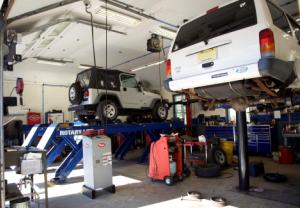
The general perception is that car preventive maintenance is an unnecessary cost for fixing problems that do not yet exist. The fact of the matter is that car preventive maintenance can be a valuable investment, increasing fuel efficiency and saving the expense of emergency repair service, towing charges, and even the inconvenience of a breakdown.
Preventive maintenance is the key to dependable vehicles, yet:
- 38% of vehicles have low or dirty engine oil
- 54% have low tire pressure
- 28% have inadequate cooling protection
- 19% need new belts
- 16% need cabin air filters
- 10% have low or bad brake fluid
When your vehicle is properly maintained it will last longer, run better and hold its value longer. More importantly, it will keep you and your passengers safe and on the road. Here are some areas that should be maintained regularly:
Engine Motor Oil & Oil Filters – Regular oil and filter changes not only reduce engine wear, but they prolong the life of your vehicle’s engine. Though the manufacturer of your vehicle may recommend differently, the best interval for changing the engine oil and the filter is every 3,000 miles. As far as the type of oil and filter that should be used, it’s important to follow the recommendations of your manufacturer.
Automatic Transmission Maintenance – When it comes to automatic transmissions, most vehicle owners rarely change the fluid. As a result, it is often the cause of premature transmission failure. Considering how expensive it is to replace a transmission, the cost of periodically changing the fluid and filter is money well spent. Most vehicle owner’s manuals do not specify a change interval for automatic transmission fluid, unless the vehicle is used for towing. They say their fluids can go upwards of 100,000 miles under normal driving conditions. Most transmission experts say that changing the automatic transmission fluid and filter every 25,000 to 30,000 miles can significantly prolong the life of the transmission. At the very least, the transmission fluid level should be checked periodically.
Cooling System Maintenance – The antifreeze in the coolant performs three very important jobs. First, it prevents the coolant from freezing during cold weather. It also raises the boiling temperature of the coolant to prevent overheating during hot weather. Finally, it fights corrosion. When maintaining the cooling system, it’s important to check the level of the coolant as well as the strength and condition of the antifreeze. Most vehicle manufacturers recommend a 50/50 mixture of water and antifreeze. Straight water or straight antifreeze should never be used in a vehicle’s cooling system.
Brake System Maintenance – Brake fluid is another fluid that is usually neglected. The only time it is changed is when the brakes are re-lined; however, it should be changed more often because brake fluid absorbs moisture over time. This may contribute to pedal fade, if the brakes overheat, and promotes internal rust and corrosion that can damage calipers, wheel cylinders and anti-lock brake system components. Many brake experts say that changing the fluid every two to three years can greatly prolong the life of the hydraulic components in the brake system and improve safety.
Power Steering Fluid – Like brake fluid, power steering fluid is rarely changed, unless a hose fails or the steering gear has to be replaced. There is no recommended replacement interval for preventative maintenance, but the fluid should be replaced if the pump or steering gear has failed and is being replace
Air Filter – The air filter keeps dirt out of the engine, so its service life depends on the operating environment. If you do a lot of driving on rural, gravel roads, the filter may need to be changed every couple of months.
Fuel Filter – For reliable engine operation and fuel system performance, a clean fuel supply is absolutely essential. The fuel filter is the fuel system’s primary line of defense against dirt, debris and small particles of rust that flake off the inside of the fuel tank. The typical manufacturer recommendation for fuel filter replacement is every 30,000 miles, but many professional technicians say yearly fuel filter changes can reduce the risk of dirty fuel-related problems.
To save on fuel costs and expensive repair bills, it’s important to make sure your vehicle is in tip-top condition. The best way to do that is to bring it to Country Road Automotive. We can help you with all your car preventive maintenance needs. Give us a call or click here to schedule an appointment on-line right now.

